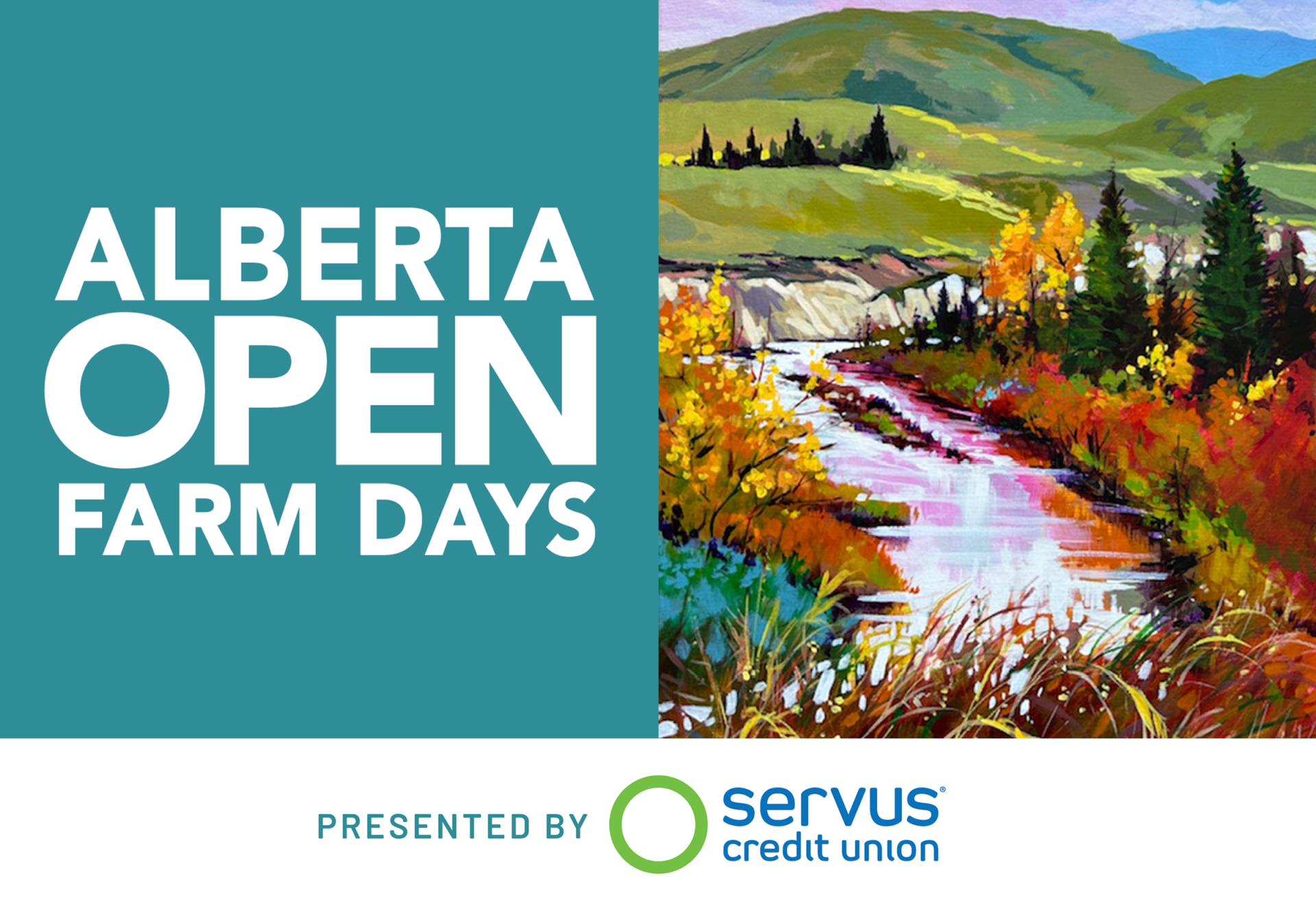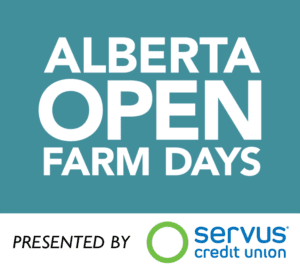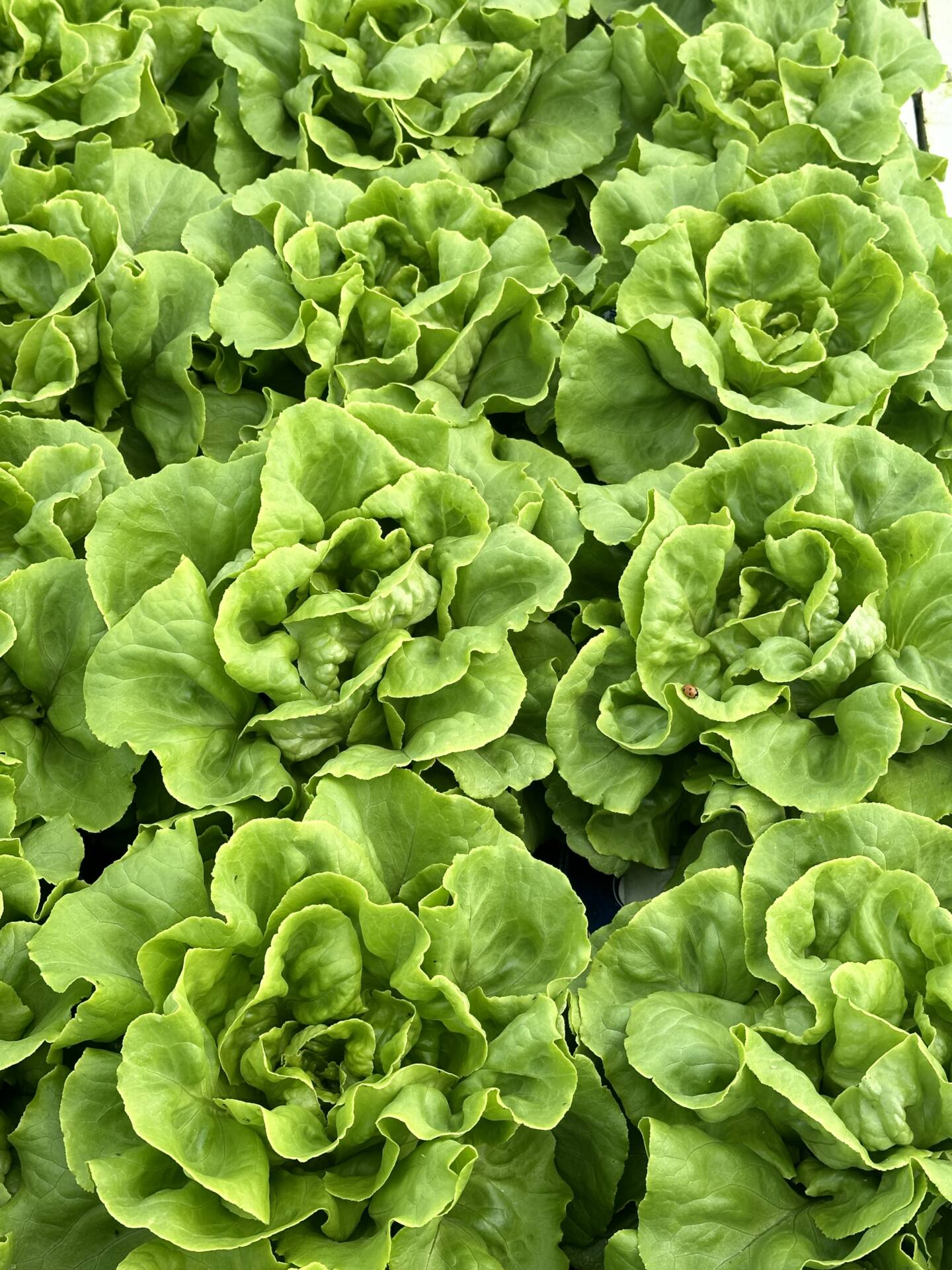
Rooted in Water: How NextGen Aqua Farms Grows the Future of Food
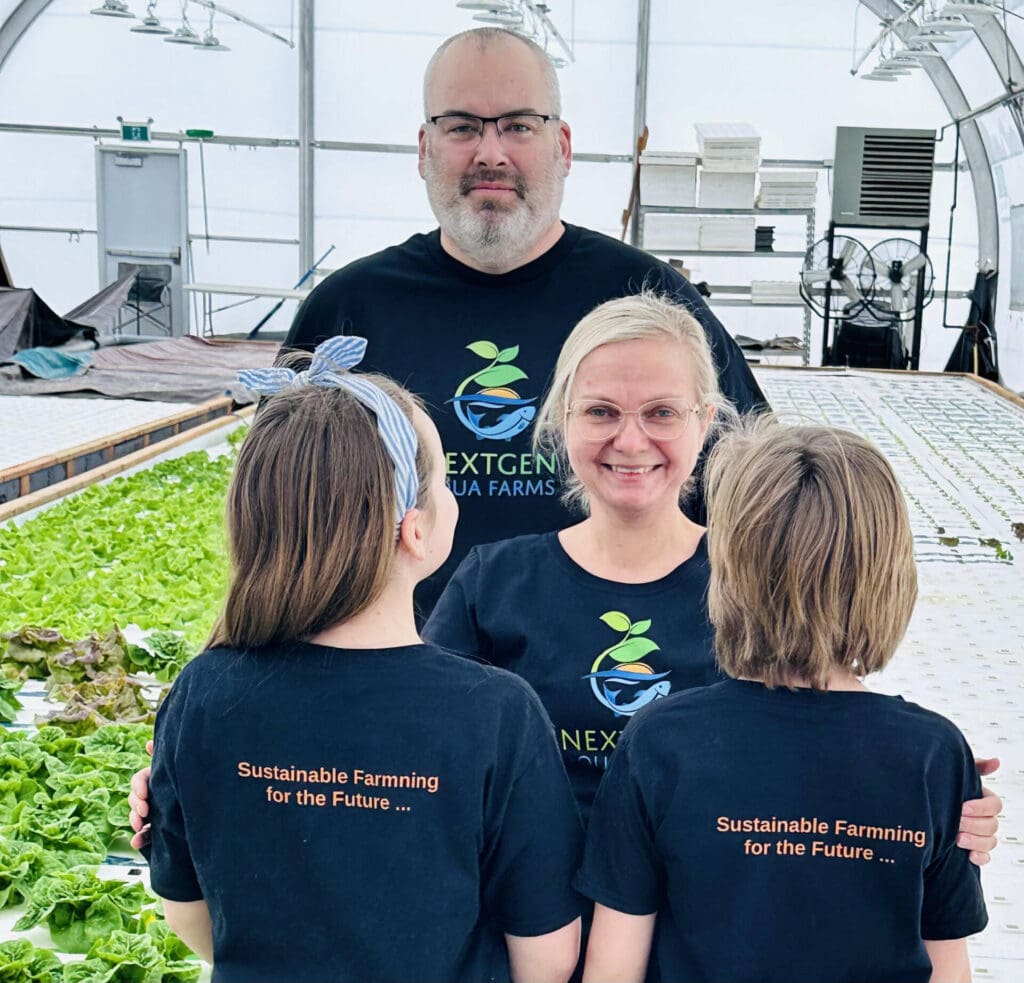
When you walk into NextGen Aqua Farms, you won’t find dusty boots or soil-covered rows of vegetables. Instead, you’ll hear the gentle trickle of water circulating through tanks and troughs, see leafy greens floating on rafts, and spot schools of tilapia gliding through pristine tanks. This is farming reimagined — not on land, but in water.
Located in Central Alberta, NextGen Aqua Farms is a local leader in sustainable aquaponics. Run by husband-and-wife duo Brent and Karlien Bartholow, the farm is a closed-loop ecosystem that raises tilapia and grows fresh leafy greens — all powered by water. Their innovative approach demonstrates how a new kind of agriculture can thrive in Alberta, even in the face of climate challenges and water scarcity.
“Our system wouldn’t exist without water,” Brent says. “It’s the lifeblood of aquaponics, where every drop nurtures both plants and fish, creating a perfect symbiotic relationship of growth and sustainability.”
Building a Balanced Ecosystem
At the heart of the operation is a careful balance — one that mimics nature’s own systems. Tilapia live in tanks where they produce nutrient-rich waste. That waste-laden water is pumped into shallow beds filled with floating rafts. On these rafts, leafy greens like lettuce, kale, and herbs grow, soaking up the nutrients. In turn, the plants filter and purify the water, which is then recirculated back into the fish tanks.
This natural filtration process creates a self-sustaining cycle. Instead of relying on synthetic fertilizers or soil, the plants receive all their nutrients from the fish waste, and the fish enjoy a clean, oxygenated environment in return.
Unlike traditional farms that use water once and let it run off into the environment, aquaponic systems recycle water continuously. That makes the process highly efficient — and especially relevant in a province where water stewardship is more important than ever.
“We use up to 90% less water than a conventional farm,” Karlien notes. “It’s a way to grow food that works with nature, not against it.”
Precision in Every Drop
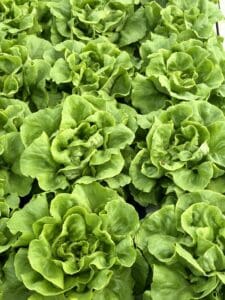
Despite the elegant simplicity of the concept, running an aquaponics system is anything but passive. At NextGen Aqua Farms, water management is a daily — and highly technical — task.
The Bartholows monitor a range of variables every day: water temperature, pH, ammonia and nitrate levels, oxygen content, and more. If even one element is off-balance, it can affect the entire ecosystem. Plants may struggle to absorb nutrients, fish can become stressed or sick, and the closed loop begins to falter.
“Without a reliable and well-managed water source, the whole system can collapse,” says Brent. “It’s not like conventional farming where you can just turn on a tap or wait for rain. Everything is controlled, everything is intentional.”
Water is sourced from a combination of well water and city water, both of which require testing and treatment to ensure they’re safe for the farm’s sensitive system. From the moment water enters the operation, it’s on a journey of careful calibration and constant movement.
Local Food, Year-Round
One of the most exciting aspects of NextGen’s model is its ability to produce fresh food throughout the year — even during Alberta’s coldest months. Because the farm is housed in a greenhouse with climate controls, Brent and Karlien can grow local produce for Central Alberta without depending on long-distance transportation or out-of-season imports.
“People are surprised when they find out how much we can grow here, and how fresh it is,” Karlien says. “Our produce doesn’t have to travel thousands of kilometres. It’s harvested right here and served locally, often within hours.”
This kind of hyper-local food system not only boosts freshness and flavour, but also reduces the carbon footprint associated with conventional agriculture. And with growi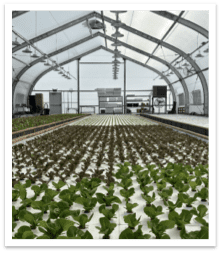 ng concerns about food security, sustainability, and climate change, it’s a model that offers hope — and results.
ng concerns about food security, sustainability, and climate change, it’s a model that offers hope — and results.
Challenges Beneath the Surface
Like any farm, NextGen has faced its share of challenges — and in an aquaponic system, water is both a blessing and a potential disaster.
“We’ve had our share of water emergencies,” Brent says. “We actually flooded the greenhouse twice.”
The first incident was caused by a water pump malfunction. Water overflowed, filling the greenhouse floor and dangerously raising the water levels in the fish tanks. As oxygen levels dropped, the fish were in danger. “We had to act fast,” Karlien remembers. “We got emergency aeration running and managed to stabilize the tanks just in time.”
The second flood came from a clogged drain. This time, the fish fared better — but the plants didn’t. “We lost several beds of vegetables that had been thriving. Watching all that effort go underwater was tough.”
These experiences were humbling, but also formative. Since then, the Bartholows have invested in better drainage systems, upgraded pumps, and implemented more rigorous maintenance schedules. They’ve learned to expect the unexpected and treat water with both reverence and respect.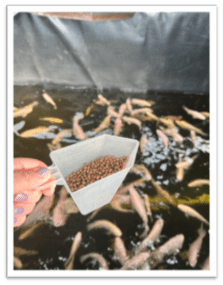
“Aquaponics is a beautiful system,” Brent says, “but it demands your full attention. You don’t just farm — you manage an ecosystem.”
A Story Worth Sharing
As Alberta Open Farm Days 2025 shines a spotlight on Water: The Lifeblood of Every Farm, NextGen Aqua Farms offers a powerful case study in innovation, resilience, and sustainability.
Their story reminds us that farming is evolving — and water, as always, is at the heart of that evolution. Whether it’s trickling through pipes or flooding a greenhouse, water has shaped NextGen’s journey every step of the way.
“We’re excited to open our doors and show people how aquaponics works,” says Karlien. “Open Farm Days gives us a chance to educate, to connect, and to share what’s possible when you treat water as a partner, not just a resource.”
For Brent and Karlien, water is more than the foundation of their farm — it’s the thread that ties together their passion for sustainability, their connection to community, and their vision for the future.
With every drop, they’re growing more than just greens and fish. They’re growing a new way forward — one rooted in balance, innovation, and respect for the most vital resource we have.
Mark Your Calendar for Open Farm Days 2025!
The 2025 Alberta Open Farm Days will be taking place on August 16 & 17th. Until then, be sure to follow along on our website and social media channels for all the latest updates, stories, and more!

